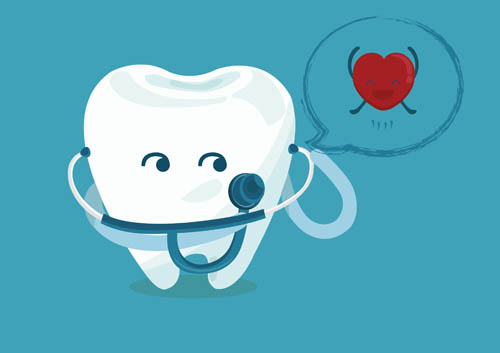Introduction
Tooth pain can be excruciating, often striking at the most inconvenient times. Whether it’s a dull ache or a sharp, stabbing sensation, tooth pain can disrupt your daily routine and diminish your quality of life. When faced with such discomfort, seeking the expertise of an emergency dentist is paramount for proper diagnosis and treatment. However, before you can get to the dentist’s chair, you may need to manage the pain on your own. Here are five effective tips to help you alleviate tooth pain until you can see an emergency dentist.
1. Rinse with Saltwater
One of the simplest yet most effective remedies for tooth pain is rinsing your mouth with saltwater. This age-old remedy works by reducing inflammation and killing bacteria that may be causing the discomfort. To make a saltwater rinse, mix half a teaspoon of salt into a glass of warm water. Swish the solution around in your mouth for about 30 seconds before spitting it out. Repeat this process several times a day, especially after meals and before bedtime, to help ease the pain.
2. Apply a Cold Compress
A cold compress can provide immediate relief from tooth pain by numbing the area and reducing swelling. Simply wrap a few ice cubes in a clean cloth or towel and hold it against the outside of your cheek, near the affected tooth, for 15-20 minutes. Be sure to take breaks in between to prevent frostbite or skin irritation. Alternatively, you can use a bag of frozen vegetables or a commercial cold pack. Applying a cold compress multiple times a day can help alleviate both pain and inflammation until you can see an emergency dentist.
3. Use Over-the-Counter Pain Relievers
Over-the-counter pain relievers such as ibuprofen (Advil) or acetaminophen (Tylenol) can help manage tooth pain until you’re able to see a dentist. These medications work by reducing inflammation and blocking pain signals to the brain. Follow the dosage instructions on the packaging carefully, and avoid exceeding the recommended dose to prevent potential side effects. If you have any underlying health conditions or are taking other medications, consult your healthcare provider before taking any over-the-counter pain relievers.
4. Try Clove Oil
Clove oil has been used for centuries as a natural remedy for toothaches due to its analgesic and antibacterial properties. Eugenol, the active ingredient in clove oil, can help numb the pain and reduce inflammation. To use clove oil for tooth pain relief, soak a cotton ball or swab in a small amount of oil and apply it directly to the affected tooth and surrounding gums. Alternatively, you can mix a few drops of clove oil with a carrier oil, such as coconut oil, and use it as a mouth rinse. Repeat this process as needed to alleviate discomfort until you can see an emergency dentist.
5. Avoid Trigger Foods and Beverages
Certain foods and beverages can exacerbate tooth pain, especially if you’re dealing with a cavity, cracked tooth, or dental infection. To prevent further irritation and discomfort, avoid consuming hot, cold, sugary, or acidic foods and beverages. These include ice cream, hot coffee, citrus fruits, soda, and candy. Instead, opt for soft foods that are easy to chew and won’t aggravate the affected tooth. Drinking plenty of water can also help flush out bacteria and debris, promoting oral hygiene and reducing pain.
Natural Ways to Alleviate Tooth Discomfort
Natural remedies can offer relief for tooth discomfort. Options like saltwater rinses, clove oil, and cold compresses can help reduce inflammation and numb the pain. Additionally, maintaining good oral hygiene with regular brushing, flossing, and mouthwash can prevent further irritation. Eating a balanced diet rich in vitamins and minerals can also support overall dental health and reduce the risk of toothaches.
Precautions for Dental Emergencies
Being prepared for dental emergencies can help mitigate pain and prevent complications. Keep a dental first aid kit at home with essentials like gauze, over-the-counter pain relievers, and a cold compress. Know the contact information for emergency dental services in your area and have a plan in place for immediate action. Avoiding hard foods, using protective gear during sports, and maintaining regular dental check-ups can also reduce the likelihood of dental emergencies.
Temporary Solutions for Tooth Pain
When faced with tooth pain, temporary solutions can provide relief until you can see a dentist. Rinsing with warm saltwater, applying clove oil, and using over-the-counter pain relievers can help manage discomfort. Avoiding chewing on the affected side, sticking to soft foods, and practicing gentle oral care can prevent further aggravation. However, these solutions are temporary, and it’s crucial to seek professional dental care for long-term relief.
Quick Fixes for Dental Discomfort
Quick fixes can offer immediate relief for dental discomfort. Applying a cold compress, taking over-the-counter pain medication, and rinsing with saltwater can help alleviate pain and reduce inflammation. Chewing on a piece of sugar-free gum or using dental wax to cover sharp edges can also provide temporary relief. However, it’s essential to address the underlying cause of the discomfort by scheduling a dental appointment as soon as possible.
Managing Tooth Pain at Home
Managing tooth pain at home involves a combination of home remedies and lifestyle adjustments. Practicing good oral hygiene, avoiding trigger foods, and using natural remedies like clove oil or saltwater rinses can help alleviate discomfort. Applying cold compresses, taking over-the-counter pain medication, and maintaining a healthy diet can also promote healing. However, if the pain persists or worsens, it’s important to seek professional dental care promptly.
Emergency Dental Care Tips
Knowing how to handle dental emergencies can make a difference in minimizing pain and preventing further damage. Stay calm and assess the situation before taking action. For knocked-out teeth, rinse the tooth with water and try to reinsert it into the socket or store it in milk until you can see a dentist. For severe pain or injuries, seek emergency dental care immediately. Having a dental first aid kit and knowing the contact information for emergency dental services can also be invaluable.
Toothache Survival Guide
A toothache survival guide can help you navigate through the discomfort until you can receive professional dental care. Utilize home remedies like saltwater rinses, cold compresses, and over-the-counter pain relievers to manage pain. Avoid chewing on the affected side and opt for soft foods to prevent further irritation. Practice good oral hygiene and schedule a dental appointment as soon as possible to address the underlying cause of the toothache.
Coping Strategies for Dental Pain
Coping with dental pain involves a combination of physical and emotional strategies. Utilize relaxation techniques such as deep breathing exercises or meditation to manage discomfort. Distract yourself with activities you enjoy, such as listening to music or watching a movie. Reach out to friends and family for support, and consider talking to a dentist or healthcare professional about your pain management options. Remember that seeking professional dental care is essential for long-term relief and oral health.
In Conclusion,
Tooth pain can be debilitating, but there are steps you can take to manage it until you can see an emergency dentist. By rinsing with saltwater, applying a cold compress, using over-the-counter pain relievers, trying clove oil, and avoiding trigger foods and beverages, you can alleviate discomfort and promote healing. However, it’s important to remember that these remedies are temporary solutions and should not replace professional dental care. Be sure to schedule an appointment with an emergency dentist as soon as possible to address the underlying cause of your tooth pain and prevent further complications.



